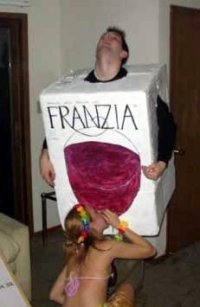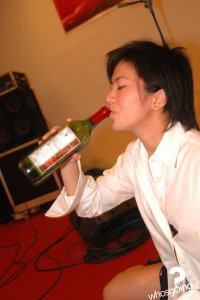The United States has threatened to block all imports of Brunello di Montalcino from 9 June.
From that date all Brunello coming into the US must be accompanied by laboratory analysis certifying that the wine is 'pure Sangiovese'.
The US is Brunello's biggest market, importing 25% of total Brunello production.
Francesco Marone Cinzano, president of the trade body, the Brunello Consorzio, said the news came via a letter from the US Alcohol and Tobacco Tax and Trade Bureau to the US Embassy in Rome on 9 May.
'Starting on 9 June, the US will block all Brunello imports unless the wine is accompanied by laboratory analysis proving that the wine is pure Sangiovese,' he said.
Since Brunello must by law be 100% Sangiovese, adding other grapes would be a violation of a strict labelling convention between the US and the EU that stipulates that what is on the label must guarantee what is in the bottle.
According to reports, the Italian Embassy in Washington had received numerous written requests starting on 9 April from the ATTB for more information and verification on the grape blending scandal that has recently battered the denomination.
The fact the requests were ignored led to this more aggressive stance, sources say.
'We have a general assembly in two days, and organising laboratory analysis will be our number one priority, to ensure that Brunello will continue to be imported into the US,' Marone Cinzano said.
He added that the latest generation of laboratory analysis can certify the authenticity only of wines made with three varieties: Sangiovese, Nebbiolo and Pinot Noir. 'Based on the level of anthocyanins, tests can prove whether wines made with any one of these three varieties are pure or if they have been blended with other varieties.'
'We now need to act rapidly to ensure consumers in the US and everywhere of Brunello's authenticity.'
In New York City, Sergio Esposito, proprietor of retailer Italian Wine Merchants, said it is wrong for Washington 'to penalize Brunello for blowing the whistle on itself.'
'Consumers have a right to know what they are drinking,' he said. 'But everybody in the wine trade knows that blending goes on in every region and every country. This means that, to be fair, the US should spot-check imported wines from everywhere that critics give 98 points or more' in order to make sure the contents are authentic.
Kerin O'Keefe & Howard Goldberg
skip to main |
skip to sidebar
Enhance the pleasure that you get from wine by sharing your experiences, knowledge, news articles and facts about the elixir of the gods and bacchanalia on earth by emailing: bacchusforyou@bellsouth.net
How Much Did The Best Bottle of Wine You Ever Drank Cost?
CONTACT INFORMATION
TO SUBMIT A POST, TO BE PUT ON THE MAILING LIST, TO HAVE QUESTIONS ANSWERED, ETC.
EMAIL:



